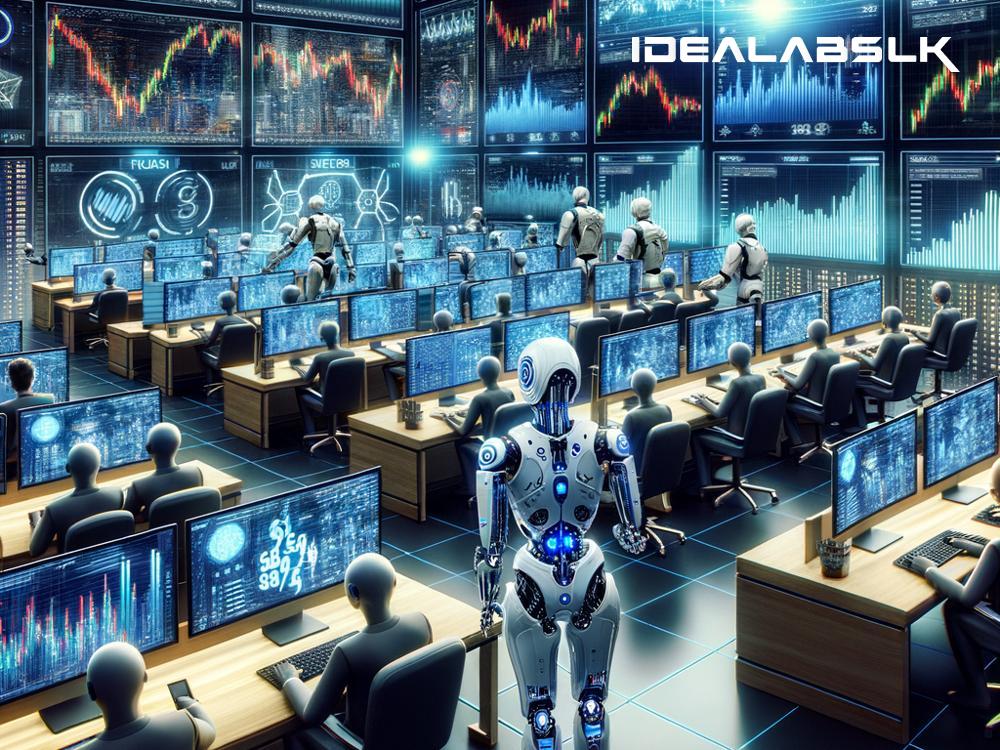AI for Trading: How Artificial Intelligence is Making Waves in Financial Trading
In today's high-speed world, Artificial Intelligence (AI) isn't just a buzzword—it's a revolutionizing force, especially in the realm of financial trading. Imagine a system so smart that it can analyze vast amounts of data, learn from it, and make decisions faster than any human ever could. That's AI for trading in a nutshell. But how is AI reshaping the financial landscape, and what does this mean for traders? Let’s delve into a simpler explanation of this complex phenomenon.
Understanding AI in the Financial World
At its core, AI involves machines performing tasks that typically require human intelligence. These tasks include learning, decision-making, and problem-solving. AI in trading involves using algorithms and sophisticated models to analyze market data, make predictions, and execute trades at optimal times.
The Power of AI in Trading
-
Speed and Efficiency: Human traders process information and make decisions at a human pace. In contrast, AI systems can analyze gigabytes of data from different sources in a fraction of a second. This speed and efficiency give AI-powered systems an edge, especially in markets where timing is everything.
-
Data Analysis and Decision Making: The market is swamped with data—news articles, reports, tweets, and economic indicators, to name a few. AI can sift through this data, discern patterns, and make informed decisions. This ability to process and analyze data at an extraordinary speed allows AI systems to identify trading opportunities that humans might miss.
-
Emotionless Trading: One of the most significant advantages of AI in trading is the lack of emotional bias. Human traders can get swayed by fear or excitement, leading to ill-timed decisions. AI, however, sticks to the strategy, making decisions based on data rather than gut feelings.
-
Backtesting: AI can simulate how a trading strategy would have performed in the past using historical data. This process, known as backtesting, is crucial for refining and validating strategies before risking actual capital.
-
Predictive Analytics: Some AI systems employ predictive analytics, using past market data to forecast future market behaviors. While not foolproof, these predictions can provide traders with valuable insights and a competitive edge.
AI in Action: Real-World Applications
-
Algorithmic Trading: Many hedge funds and financial institutions use AI for algorithmic trading, where computers execute trades based on predefined criteria. This method allows for executing large orders or multiple orders simultaneously, maximizing efficiency and profitability.
-
Risk Management: AI helps firms in identifying and managing risks by analyzing market conditions, trader behavior, and other variables. This helps in devising strategies that minimize losses and optimize returns.
-
Fraud Detection: The financial industry uses AI to detect suspicious activities and prevent fraud. By learning normal trading patterns, AI systems can flag transactions that deviate from the norm, thereby safeguarding against illegal activities.
Demystifying AI: Barriers and Challenges
Despite its advantages, AI in trading isn't without its challenges. These systems require significant resources—technological infrastructure, data, and expertise—to develop and maintain. Moreover, reliance on algorithms can sometimes lead to unpredictable outcomes, like flash crashes where markets suddenly plummet. Another concern is the potential for over-reliance on AI, leading to a lack of oversight and understanding of complex trading strategies among human traders.
The Future of Trading with AI
As technology advances, AI's role in trading is set to grow. We're already seeing the development of more sophisticated systems capable of making increasingly complex decisions. The future might even see AI systems that can interpret and react to human emotions in the market, further blurring the lines between human and machine trading.
However, this doesn't mean that AI will replace human traders. Instead, the most successful traders are likely to be those who can harness the power of AI to complement their skills and insights. By leveraging AI, traders can manage data more effectively, make informed decisions, and stay ahead in the fast-paced world of financial trading.
In Summary
AI is transforming financial trading, offering unprecedented speed, efficiency, and accuracy. From algorithmic trading to risk management and fraud detection, AI's applications are vast and varied. Despite its challenges, the integration of AI in trading strategies presents a promising frontier for those willing to navigate its complexities. As we look to the future, the synergy between human intelligence and artificial intelligence will undoubtedly redefine the art of trading.

